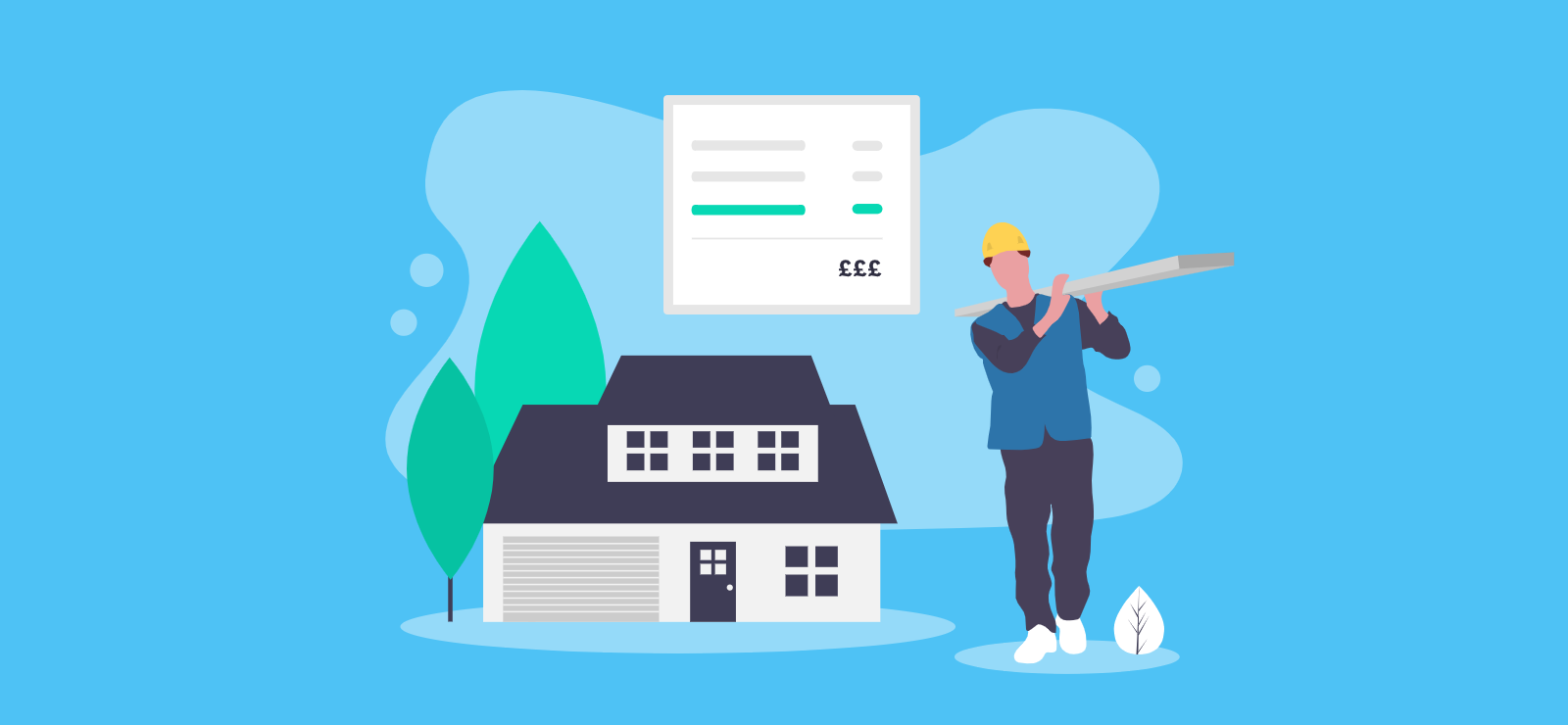

Your Guide to the VAT Domestic Reverse Charge
The UK VAT domestic reverse charge was introduced to combat VAT fraud in the building and construction sector. In this article we’ll explain who the domestic reverse charge applies to.
What is the VAT domestic reverse charge?
The domestic reverse charge is a type of VAT procedure introduced for businesses working in the construction industry. VAT is normally accounted for by the supplier (the subcontractor) who will add VAT to any taxable sales they make, but with the reverse charge it’s up to the buyer (the contractor) to account for it instead.
Why was it introduced?
VAT fraud costs the UK Exchequer more than £100 million a year. Unfortunately, this fraud is often carried out by organised criminals in the construction sector, attracted by the chance of 5% or 20% extra (illegal) profit.
Historically, unscrupulous business owners charged VAT to supply a particular service before later failing to pay their VAT bill. The effect of the VAT reverse charge is that VAT payment is moved down the supply chain, making this type of fraud near impossible.
Reverse charge schemes are not new, and similar schemes also exist for businesses like computer chip retailers, wholesale energy suppliers and mobile phone sellers.
Who is affected by the VAT domestic reverse charge?
The domestic reverse charge for VAT applies to UK companies carrying out construction services in the UK which are:
- UK VAT registered
- Registered under the Construction Industry Scheme
When is it charged?
The reverse charge will apply right through the supply chain until a customer receiving the service or materials is no longer related to construction, or if they are an intermediary supplier.
The reverse charge should be applied when all the following conditions are met:
- VAT-eligible construction services and/or materials have been supplied to an end customer in the UK
- The customer and the supplier are not connected or linked
- The VAT rate applied is either the standard or reduced rate
- Both the supplier and the customer are VAT and CIS registered
Which services come under the VAT domestic reverse charge?
Any services that form an integral part of the activities below, or their preparatory work, will attract the VAT reverse charge. Such services include:
- Earth-moving excavation or site clearance
- Building, repairing, altering, extending or demolishing any permanent or non-permanent structure, including those installed offshore
- Any works (including maintenance) relating to walls, roadworks, railways, aircraft runways, docks and harbours
- The installation in any building or structure of lighting, heating or air conditioning systems, ventilation systems, power or water supplies, sanitation, drainage or fire protection
- Any works (including maintenance) relating to water mains, sewers, inland waterways, wells, reservoirs, pipelines, land drainage installations, coast protection or defence
- Painting and/or decorating of any structural or building surfaces, whether internal or external
- Any works (including maintenance) relating to electronic communications apparatus or power lines
- Internal cleaning of buildings and structures as part of a construction, repair, extension, alteration or restoration project
Unlike the CIS scheme, the VAT reverse charge not only applies to everything listed above, but also to any construction materials used directly for the work.
When does the reverse charge not apply?
The CIS reverse charge does not apply if:
- The supplies are VAT exempt
- The customer and the supplier are connected or linked
- The supplies are not covered by CIS
What does it mean for subcontractors?
If you’re a subcontractor looking to invoice a customer in a supply chain, VAT should either be charged as normal (if the measure doesn’t apply), or covered under the reverse charge. If the reverse charge is used, then the invoice must not include VAT.
The one thing that’s so important with the VAT reverse charge mechanism is transparency. This means that it must be made clear on all subcontractor invoices if the VAT reverse charge applies so that customers are aware. The invoice should also state the rate of VAT applied.
Customers must then include the correct VAT amount on their VAT return. Only customers (or contractors where involved) need to do this – subcontractors shouldn’t include the reverse charge when they submit their VAT return.
What about main contractors?
Main contractors that receive a VAT reverse charge invoice from a subcontractor must record it as a normal expense invoice, so should include the VAT on their VAT return. They must also account for the reverse charge, as notified by the subcontractor on their invoice.
The output VAT is covered by the input VAT so they balance out – i.e there will be no effect on a contractor’s VAT liability.
What about invoices for mixed supplies so there’s a VAT reverse charge component?
The VAT reverse charge should be applied for the whole invoice, even if it only partially applies.
Learn more about our online accounting services today. You can also speak to our team on 020 3355 4047, or get an instant online quote.
Want to learn more?
Subscribe to our newsletter to get accounting tips like this right to your inbox

Read more posts...

Side Hustle Ideas
3rd February 2026Side hustles are everywhere these days – it feels like almost everyone has one. If you’re thinking it might be your turn…
Read More
Comparing Caroola and The Accountancy Partnership
29th January 2026If you’re a business searching for a new accountant at the moment, then The Accountancy Partnership is most likely already on your…
Read More
Find Your Corporation Tax and Company Reference Numbers
27th January 2026You’ll need your Corporation Tax and company reference numbers every time you file or update information on behalf of your company –…
Read MoreConfirm Transactions
The number of monthly transactions you have entered based on your turnover seem high. A transaction is one bookkeeping entry such as a sale, purchase, payment or receipt. Are you sure this is correct?
Please contact our sales team if you’re unsure
VAT Returns
It is unlikely you will need this service, unless you are voluntarily registered for VAT.
Are you sure this is correct?
Call us on 020 3355 4047 if you’re not sure.
Bookkeeping
You will receive our bookkeeping software Pandle for free, as part of your package.
You can use this to complete your own bookkeeping, or we can provide a quote to complete your bookkeeping for you.
Please select and option below:
Call us on 020 3355 4047 if you’re not sure.

